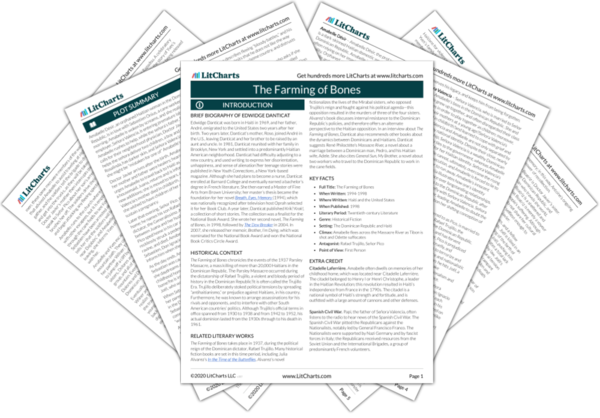Once again, Father Romain makes explicit that memory is vital to preserving history. He prompts his community to recollect shared traditions, so that they do not forget their heritage in a different country. Furthermore, the priest acknowledges that memory can be painful, illustrating a lesson that is central to Amabelle’s life. Amabelle consistently remembers her traumatic past, despite the psychological damage it causes her, but in doing so, she protects her past and life story from being forgotten or revised.
